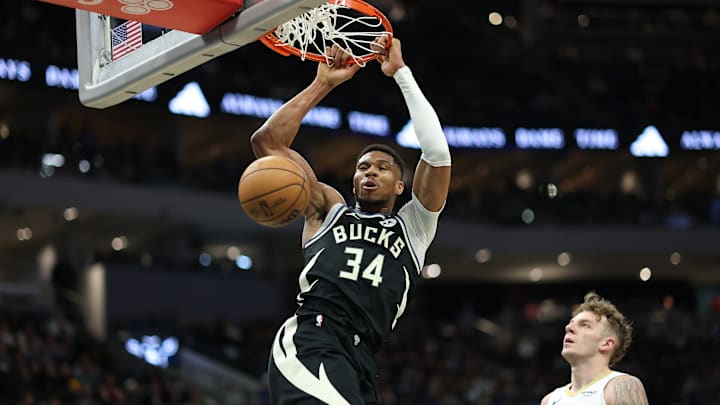There’s no team more quietly equipped for a blockbuster than the New Orleans Pelicans. They’re sitting on a pile of picks, including their own lottery selection in the 2025 NBA Draft, and—crucially—they still control some of Milwaukee’s future via the Jrue Holiday trade. If the Milwaukee Bucks were ever forced to consider trading Giannis Antetokounmpo, a call from New Orleans would come fast.
But there’s a catch. And it’s a big one.
Would a player like Giannis even want to go there?
It's hard to imagine Giannis choosing New Orleans
Let’s start with the math. The Pelicans have the warchest to offer Jon Horst and company a hefty payday for their troubles. They could package this year’s lottery pick with the 2025 Lakers pick (which they can choose to swap or defer), plus their own 2025 pick, No. 7 after a brutal finish, and maybe even toss in one or two of the Bucks’ picks they already own from the Holiday deal. No other team can dangle that combination of immediate draft capital and let Milwaukee regain control of its own future.
In short, it’s an efficient path back to stability. But efficiency isn’t the same as appeal. From Giannis’s side, there are serious red flags.
You only have to look at last season to prove that to be true. New Orleans finished 14th in the West—only the Utah Jazz were worse. There were many factors influencing that outcome, of course, but the biggest one is arguably that Giannis' would-be star in Zion Williamson still can’t meaningfully stay on the floor even if he's incrementally gotten better throughout this season.
And while the roster has some serviceable depth—CJ McCollum, Trey Murphy III and Herb Jones are all fine pieces for a team chasing its first playoff appearance in a minute—it’s still overall a weird fit for a ball-dominant playmaker like Giannis. Putting him next to another interior presence like Zion would force one of them out of their comfort zone, and spacing would be a nightmare if neither adapts.
Giannis thrives in transition, in space, and with shooters. New Orleans isn't built that way. Zion needs the lane. And the Pelicans ranked just 25th this season in 3-point attempts (34.2), 24th in 3-point percentage (34.7 percent) and 15th in pace (99.7). That’s simply not anywhere close to being the modern runway Giannis needs in his 30s, considering he'll be leaving the team that just led the league in regular-season 3-point percentage.
Sure, the Pelicans could offer Zion to Milwaukee in a deal to make the fit less clunky, but would the Bucks want to take on the star who has been injured frequently since coming into the league, especially with Damian Lillard already on the sidelines? It could be a tough sell.
If Giannis doesn’t view New Orleans as a title-contending upgrade (and to be frank about it, right now, it’s nearly impossible to make that case), the trade falls apart before its framework even crystallizes.
The Bucks need to do right by their franchise player in any discussions
After all, the Bucks don’t have to trade him unless he forces the issue and facilitates it on his own volition. And if he does, they need to send him somewhere he’s willing to re-sign. A small-market swap with questionable upside? That’s a hard sell.
Still, from Milwaukee’s front office perspective, the Pelicans offer something rare: a chance to clean the books and reclaim their future. Few teams can give you your picks back and throw in lottery talent. That alone puts New Orleans on the radar.
But that’s exactly the dilemma. The Bucks might love the deal. Giannis, who has made clear numerous times that his main priority is winning, probably won’t. And when you're negotiating a trade involving one of the greatest players of this generation, you don’t just need a treasure chest—you need alignment. You need buy-in. And you need to part ways amicably.
There's no debate on this one: Milwaukee absolutely has to do right by the franchise cornerstone that won them their first ring in 50 years, even as they prepare to part ways with him in this scenario.
Therein lies the problem: while the Pelicans are a fascinating dark horse, they remain just that: a team watching from the shadows, unless something drastic changes.
